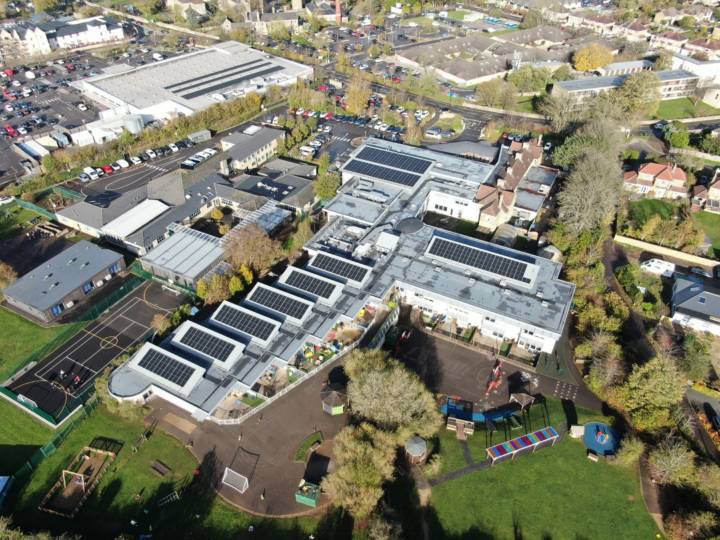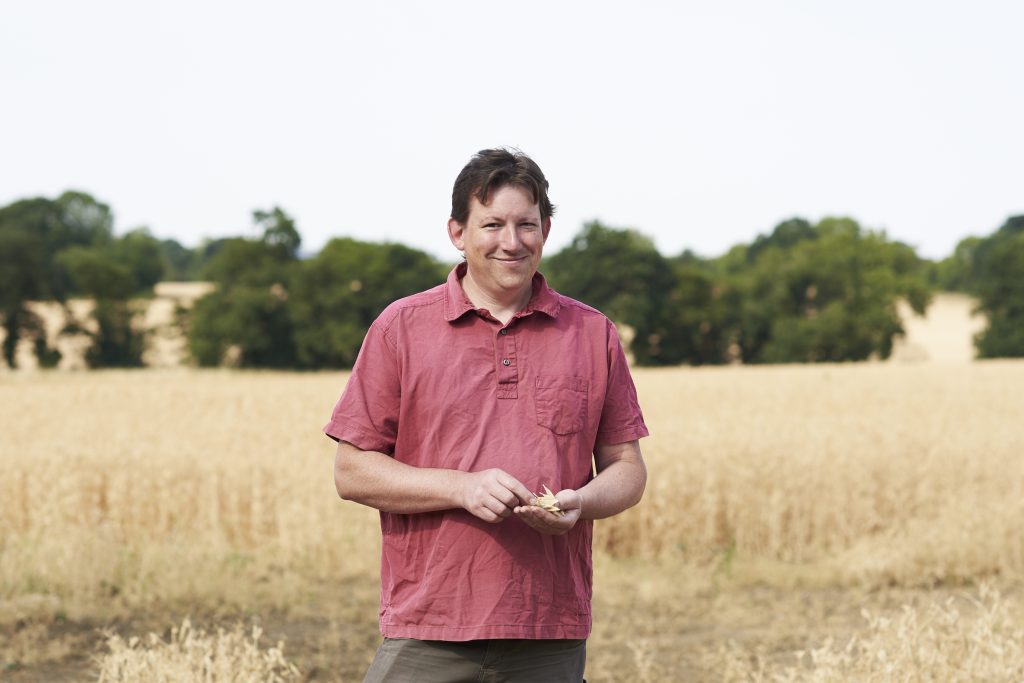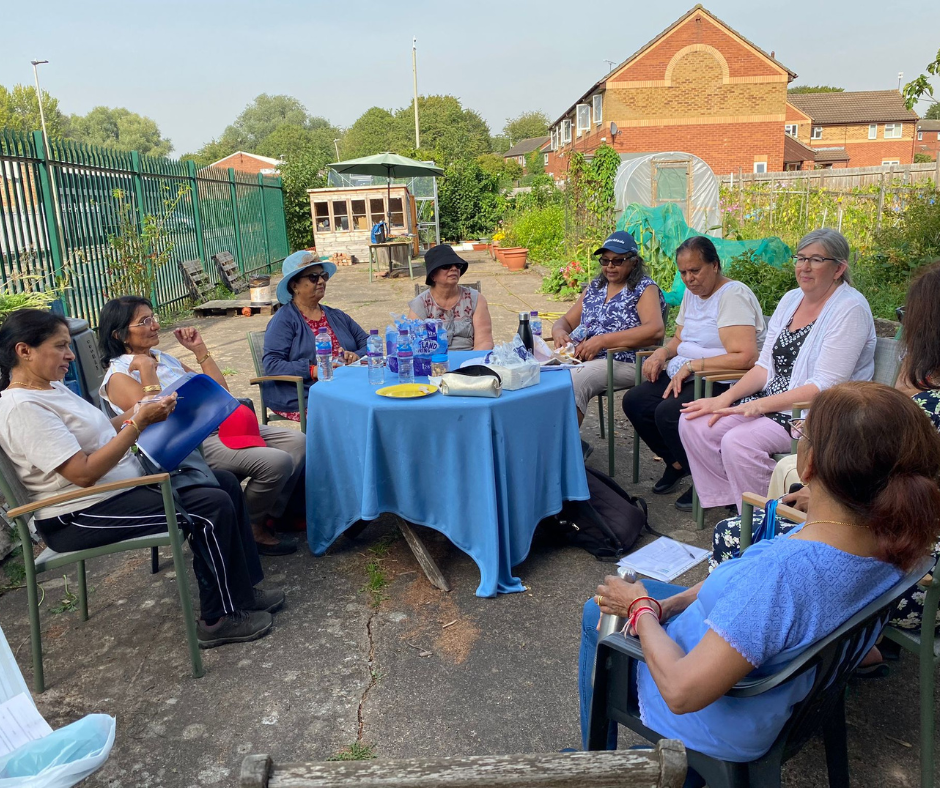The challenge of scaling up well – Transition Alive 2

17 April 2024
6 minute read
Given the depth of the challenges our world is facing – how can the good stuff that’s happening be spread, replicated and scaled up – without causing some of the very problems we’re trying to resolve? In the second of her series inspired by our Transition Alive events, Cam Elizabeth explores how this works in practice, the joys and pitfalls, from projects and businesses to emerge from the Transition Movement.
Scaling up a green initiative that is regenerative as opposed to extractive is complicated. Going bigger could open up all kinds of possibilities for improving the wellbeing of people and planet. Just imagine being part of an initiative and having the resources to breathe deep, rest well, and enjoy the experience of doing projects together.
But there are also risks, as Anthea Lawson reminds us. Anthea wrote the book ‘The Entangled Activist’, about how changemakers can end up recreating aspects of the system that they’re trying to change. She reflected that: “The basis of capitalism is extraction. If we’re not careful we practice those systems of extraction upon ourselves and upon each other when we set up our projects.”
How valuable, then, to hear from real-world projects which have come up against these tensions and how they were navigating them. Pete Capener from the community energy business, Bath and West Community Energy (BWCE) said: “Voluntary support is the lifeblood of community action, “but to deliver consistently over a long period of time, we needed employment. In order to do that we needed to build sufficient scale to create enough revenue to employ staff.” It’s heartening that for BWCE a key reason for upscaling was to improve the wellbeing of their people.
When Scottish Communities Climate Action Network was invited to set up a series of regional climate hubs across Scotland, it was a huge opportunity to roll out local climate action. But recruiting more than 20 people for the programme was also a huge pressure and challenge. Craig Dunn, SCCAN’s Operations Lead, explained: “The workload was much higher than we anticipated. A couple of hubs that we were trying to set up took up 80% of our time….Our staff needed more time off than we anticipated and we should have taken better care of them.”
Craig recognised that SCCAN could have taken bolder steps and negotiated the project deadlines that were impacting on staff conditions. This is hard, of course, within a system that isn’t necessarily sympathetic to such needs, and where funders have a lot of power.
Sam Woods of Transition Leicester offered an alternative framing. She described periods of burnout and volunteer rest times as hiatus periods, important states from which new ideas emerge; just as shoots emerge from bulbs that are well nurtured. This approach isn’t the norm yet, but it could be. We could respect and protect staff and volunteer rest times, seeing these as valuable periods for growth and coming back stronger.

Hodmedod is a small, independent business that emerged over a decade ago from Transition Norwich’s Resilient Food Project exploring how the city could feed itself. The business now has a turnover of £2.5 million and is looking to expand.
Josiah Meldrum, Hodmedod’s Co-founder and Director, said as they sought to increase the production of UK pulses, they realised farmers would be more willing to do business with them if they were set up in a familiar way – as a limited company. At the time, this model made sense. However, now, as they look to expand their reach, Hodmedod is asking if an employee ownership model would be more faithful to their purpose: “You can’t change the system by trying to recreate it with a different name.”
It can also be tricky to maintain relationships and trust with communities as projects grow. Josiah said Hodmedod will always seek farmers’ help with finding the answers; not go into farming communities with their own solutions. Growing the business, for Josiah, means having more resource for listening and partnership-building. There is no intention to ‘out-grow’ this approach.
For Sam from Transition Leicester and Taruna Mistry from Leicester Community Links, inviting more people into the conversation about climate action is about deepening their listening and forging strong partnerships, rather than spreading themselves thinner. They will work with Hindu Climate Action to train up Hindu Community Connectors to hold workshops in both Gujarati and English. The project’s multilingualism is key in a city where over 11% of the population speak Gujarati. Their work is only beginning – what is clear is that Taruna and Sam are meeting people where they’re at and prioritizing connection.

All these stories conveyed something of the complexity of evolving; how to upscale without becoming extractive; how to roll out big plans without losing a depth of care and connection with both those within the organization and those outside of it; of not going beyond what is human.
Our Keynote Listeners, Anthea Lawson and Nick Romeo helped us make sense and draw out learnings from these real world examples. Nick Romeo, US journalist and essayist, suggested that businesses should factor in the true costs to human and environmental health when communicating about their goods and services, in order to undermine the illusion of cheap pricing. To this end, Nick reminded us not to give up on influencing policy at local and national level.
The reality of a greener world supporting the wellbeing of all, with time for rest and reflection, financial security, connection and inclusive conversations is within our reach. Only, it seems so important that we keep convening; not only to share learning, but to remind each other of the value and shape of the things we want. There is a question we need to keep asking ourselves, which is whether our actions really reflect the future we want.
Find out more
Watch back Transition Alive Part 2 – Alive to the Power of Building Alternatives here.
Read Cam’s reflections on Making way for Justice in each community and “This is a Time for Serious Play“.